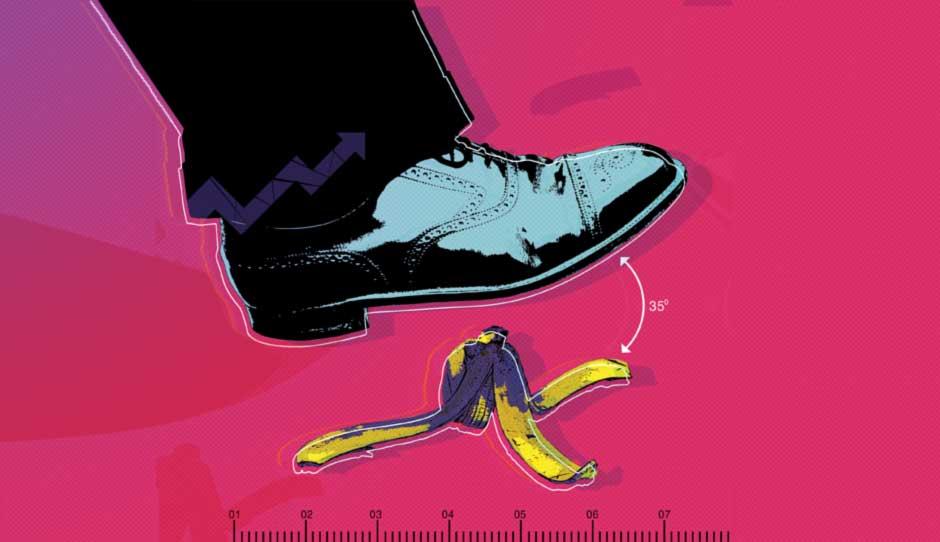The Pitfalls of Incremental Success
- BY Sonal Khetarpal
 In People
In People 9185
9185 0
0

A growth in numbers isn’t enough. To really feel fulfilled, step back and think—have you reinvented yourself?
For the new age executive, Monday morning blues are passé. The new breed breezes through the first two days of the week banking on reserves of energy from the weekend. Friday issues are resolved in a jiffy, weekly targets are recalibrated and work accelerates at full throttle. Come Wednesday evening, ennui sets in and energy levels start to deplete. By Thursday, ambitions are distant dreams. Running the show is the end by itself.
It was on one such Thursday that a good friend—a highly-visible CEO of a fast-growing mid-sized enterprise—called me. After the mandatory small talk, he got to the point. He wondered if we could have an impromptu coaching session right away. He sounded less than his cheerful self and I instantly agreed.
Discussions soon veered towards his future. Over the past seven years, he had built a successful IT services firm. He had a great team and was financially well-rewarded. As an effective manager, he had created an aggressive work culture with product introductions, tight delivery schedules and periodic reorganisations. His team was motivated. His office was buzzing. Yet something was missing, he said. As we spoke, I could sense a definite sense of discontent—not so much from what he was doing but the manner in which he was doing it. He agreed vigorously when I put that diagnosis forward.
“Incrementalisation leads to fossilisation,” I announced, somewhat grandly. I was met with a stoic look. So I explained. Basically, I asked him to recall the last time he had stepped back from his schedule to really think. He couldn’t remember. The pace he’d set for himself hadn’t allowed him to reinvent himself.
“Isn’t it true that over the past few years your company has largely been doing the same kind of work? You might have sold the changes as exciting and innovative to your employees. But by working on incremental improvements only, you are gradually being driven to a fossil-like situation,” I said. He considered what I had said carefully. Finally, he agreed. But he defended himself by saying that this mode of working had kept the firm running in the past few years.
I gave him the example of a car manufacturer who releases a new model each year. It makes for sound business sense, of course. But the so-called new models carry incremental design changes—a superior seat, a smarter looking dashboard or aesthetically pleasing rear lamps. Think of what happens to manufacturers like these, I urged. Soon enough, “new models” stop generating buzz and the company starts losing market share as the model gets fossilised.
It isn’t an eventuality restricted only to products and market places. An international tennis star might find his spate of defeats have eroded his popularity. To reverse this, he may train harder, appoint a new coach and a fitness trainer or switch to a new racquet. But he will soon discover that these are only incremental changes. In fact, he might start losing to players ranked lower. Does he too become a fossil?
Our conversation ground to a halt. As a keen sports enthusiast, the tennis player example had struck a chord with my friend. I could sense him internalising what we were talking about. He seemed keen to push the envelope. “Tell me how to make a difference,” he demanded. But I wasn’t an advisor, I reminded him. He would need to do that homework himself. All I reiterated was that he needed to work out how to do an “innovation paradigm shift”. I gave him a list of questions to help him get started:
Is the work I am doing now meeting both my personal goals and long-term vision—the vision with which I originally started my business?
What am I not doing to realise my full potential?
Where should I expand and grow to realise my dreams?
He promised, more to himself than to me, to begin asking those questions. As we closed, he hoped it would be okay if he called again to talk about this. I agreed. Next Thursday is still seven days away, I told myself.
*Krishna Kumar is a master trainer and professional coach specialising in transformational leadership. An internationally-certified tennis coach, he’s also the founder of Kinesis Sports, India’s first ISO 9001-2008 certified tennis training institution. You can find him at www.isecindia.in.





























Add new comment